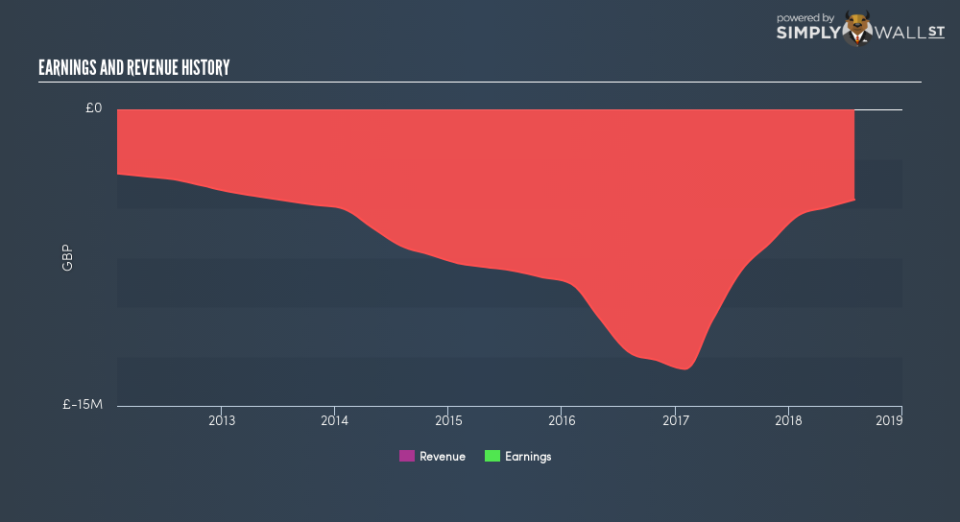Does Market Volatility Impact e-Therapeutics plc’s (LON:ETX) Share Price?

If you’re interested in e-Therapeutics plc (LON:ETX), then you might want to consider its beta (a measure of share price volatility) in order to understand how the stock could impact your portfolio. Modern finance theory considers volatility to be a measure of risk, and there are two main types of price volatility. First, we have company specific volatility, which is the price gyrations of an individual stock. Holding at least 8 stocks can reduce this kind of risk across a portfolio. The other type, which cannot be diversified away, is the volatility of the entire market. Every stock in the market is exposed to this volatility, which is linked to the fact that stocks prices are correlated in an efficient market.
Some stocks mimic the volatility of the market quite closely, while others demonstrate muted, exagerrated or uncorrelated price movements. Some investors use beta as a measure of how much a certain stock is impacted by market risk (volatility). While we should keep in mind that Warren Buffett has cautioned that ‘Volatility is far from synonymous with risk’, beta is still a useful factor to consider. To make good use of it you must first know that the beta of the overall market is one. A stock with a beta below one is either less volatile than the market, or more volatile but not corellated with the overall market. In comparison a stock with a beta of over one tends to be move in a similar direction to the market in the long term, but with greater changes in price.
See our latest analysis for e-Therapeutics
What we can learn from ETX’s beta value
Zooming in on e-Therapeutics, we see it has a five year beta of 1.4. This is above 1, so historically its share price has been influenced by the broader volatility of the stock market the market. Based on this history, investors should be aware that e-Therapeutics are likely to rise strongly in times of greed, but sell off in times of fear. Many would argue that beta is useful in position sizing, but fundamental metrics such as revenue and earnings are more important overall. You can see e-Therapeutics’s revenue and earnings in the image below.
How does ETX’s size impact its beta?
e-Therapeutics is a rather small company. It has a market capitalisation of UK£18m, which means it is probably under the radar of most investors. It has a relatively high beta, suggesting it is fairly actively traded for a company of its size. Because it takes less capital to move the share price of a small company like this, when a stock this size is actively traded it is quite often more sensitive to market volatility than similar large companies.
What this means for you:
Since e-Therapeutics tends to moves up when the market is going up, and down when it’s going down, potential investors may wish to reflect on the overall market, when considering the stock. In order to fully understand whether ETX is a good investment for you, we also need to consider important company-specific fundamentals such as e-Therapeutics’s financial health and performance track record. I highly recommend you dive deeper by considering the following:
Future Outlook: What are well-informed industry analysts predicting for ETX’s future growth? Take a look at our free research report of analyst consensus for ETX’s outlook.
Past Track Record: Has ETX been consistently performing well irrespective of the ups and downs in the market? Go into more detail in the past performance analysis and take a look at the free visual representations of ETX’s historicals for more clarity.
Other Interesting Stocks: It’s worth checking to see how ETX measures up against other companies on valuation. You could start with this free list of prospective options.
To help readers see past the short term volatility of the financial market, we aim to bring you a long-term focused research analysis purely driven by fundamental data. Note that our analysis does not factor in the latest price-sensitive company announcements.
The author is an independent contributor and at the time of publication had no position in the stocks mentioned. For errors that warrant correction please contact the editor at editorial-team@simplywallst.com.

 Yahoo Finance
Yahoo Finance 
